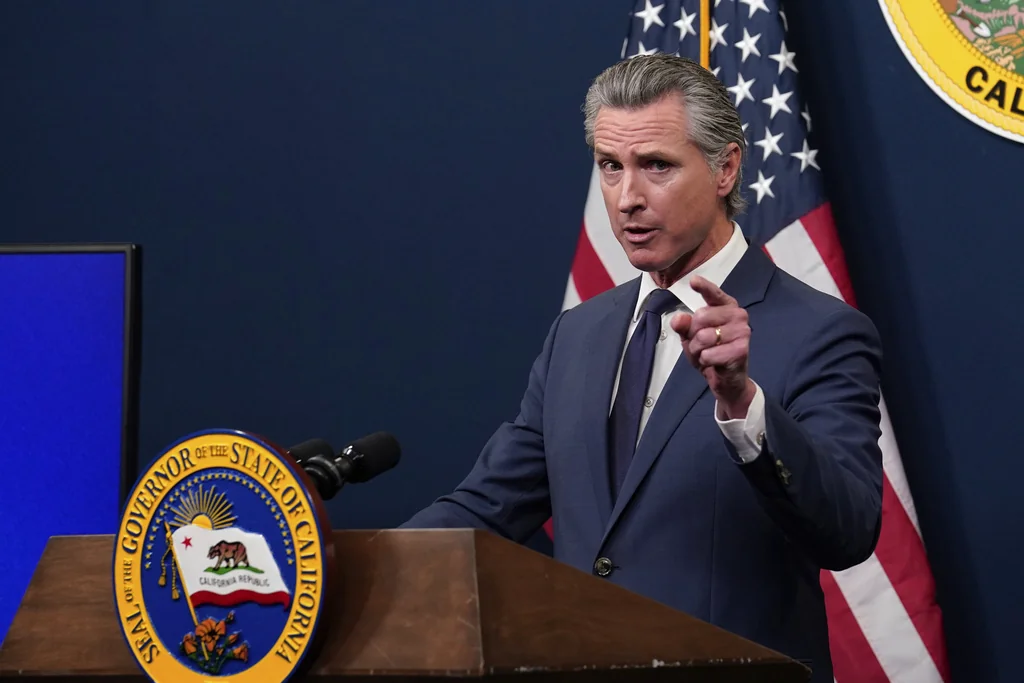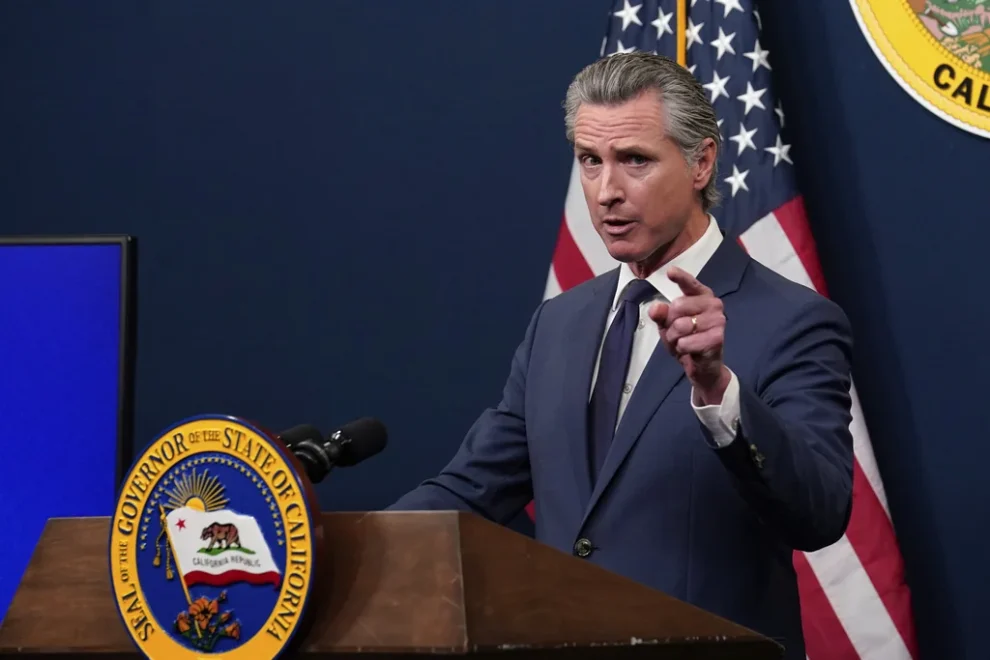Gov. Gavin Newsom (D-CA) spent the last week blaming President Donald Trump for a $12 billion budget deficit that led to tough cuts in the state’s healthcare services, but he had no qualms about carving out more than $750 million a year in tax credits for Hollywood.
The money is for the expansion of the state’s investment in film and TV tax credits, which were first instituted in 2009 by then-Gov. Arnold Schwarzenegger to boost the industry. California’s tax credit was created in response to other states luring production companies away. As of 2024, 37 states had similar incentives. New York raised its incentives to $800 million a year from $700 million last week, while Georgia has an unlimited tax credit, which it proudly touts.
“Our state leadership has sent a clear statement, literally across the world, that Georgia strongly supports the film industry,” said Kelsey Moore, executive director of the Georgia Screen Entertainment Coalition.

If Newsom’s budget is passed as is, the state will allocate up to $750 million each year, more than double its current $330 million offer.
The move is a staggering one for Newsom, an early 2028 Democratic presidential contender.
He initially said any big funding requests from Los Angeles would be denied due to the tremendous cost from the wildfires earlier this year, but he seemed to change his mind. On Wednesday, when he rolled out his 2025-26 proposed budget, Newsom claimed the film and TV industry was “on life support” and that helping Hollywood would, in turn, help the state’s “economic recovery, economic growth.”
To be sure, Hollywood has suffered. The pandemic shut down production, writers went on strike, and incentives from other states and countries to bring production there have led to a drop-off in production in Los Angeles.
Still, the push to prop up the industry might be a tough pill to swallow for Californians, whose healthcare will be slashed under Newsom’s budget, despite a promise just a year ago to deliver “universal healthcare for all,” regardless of immigration status.
Fact sheets on the healthcare proposal provided by his office this week said he would freeze enrollment in his 2025-26 budget for “undocumented adults” to receive the full scope of the state’s Medicaid program. The changes would apply only to new applicants over 19 years old. Existing enrollees would not be kicked off their plans, and the freeze would not apply to people enrolled in limited plans, such as ones that specifically cover emergency or pregnancy services. The freeze would begin next year.
Newsom also plans to cut spending for a program providing in-home domestic and personal care services for some low-income residents and Californians with disabilities by capping workers’ overtime and limiting travel hours at 50 hours per week.
Newsom’s embrace of Hollywood has not landed well with lawmakers from both parties.
Assembly Republican leader James Gallagher called the governor’s proposal “tone-deaf.”
He also called Newsom’s blaming of Trump for the state’s woes, which he did a lot, “crap.”
“Newsom’s finger-pointing on the budget shortfall is the biggest load of crap I’ve ever seen from a politician, and he shovels out a lot of it,” Gallagher said. “We’re in this mess because of his reckless spending, false promises, and failed leadership.”
Assemblyman Corey Jackson, a Democrat, also expressed frustration over the Hollywood handout.
“I’m not sure the rest of California will be OK with their senior programs, their disability programs, their education programs being cut in order to prop up a regional industry,” Jackson told CalMatters.
Earlier this month, Trump announced a 100% tariff on films produced overseas. Newsom allegedly reached out to the White House in hopes of working together on a $7.5 billion federal tax incentive to keep more TV and film productions in the United States.
Other California lawmakers, such as Sen. Adam Schiff (D-CA) and Rep. Laura Friedman (D-CA), have also advocated a national program to put the U.S. on equal footing with other countries.
























